Beyond the Battlefield: Spiritual Challenges of Wounded Soldiers
Can a soldier without a left hand put on tefillin? A new book by Rabbi Bistritzky explores the fascinating questions of Jewish law encountered by Israeli soldiers injured in combat.
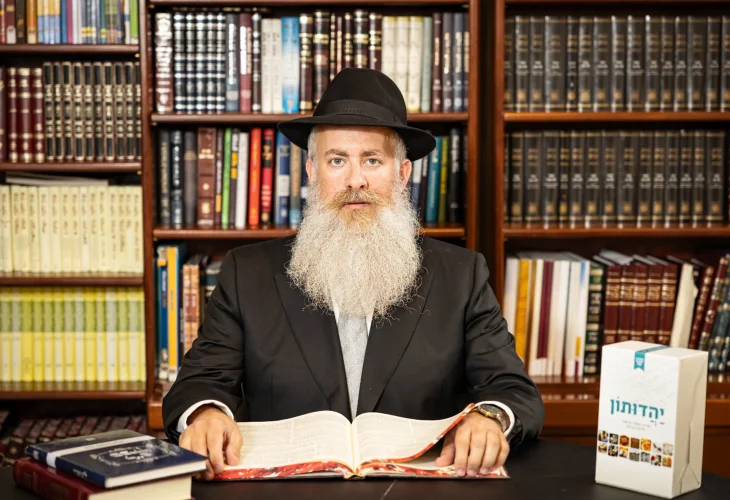 Rabbi Bistritzky (Photo: Savion Chabad House)
Rabbi Bistritzky (Photo: Savion Chabad House)How does one put on tefillin without a left hand? What are the rules for breaking a glass at a wedding for someone with no leg? Can a soldier missing an arm or a leg lead services in synagogue? And how does someone without hands perform the mitzvah of taking the four species during Sukkot?
These questions might never cross the mind of most people, but for the thousands of soldiers injured during conflicts, these are daily realities.
Rabbi Shmuel Bistritzky, the rabbi of the Savion Religious Council and a Chabad emissary, has encountered these issues firsthand. For nearly two decades, he has been working to make Judaism accessible to Israelis through the 'Yahaduton Project,' which offers educational videos on over 50 Jewish topics in seven languages, and through a series of books making Jewish law more approachable.
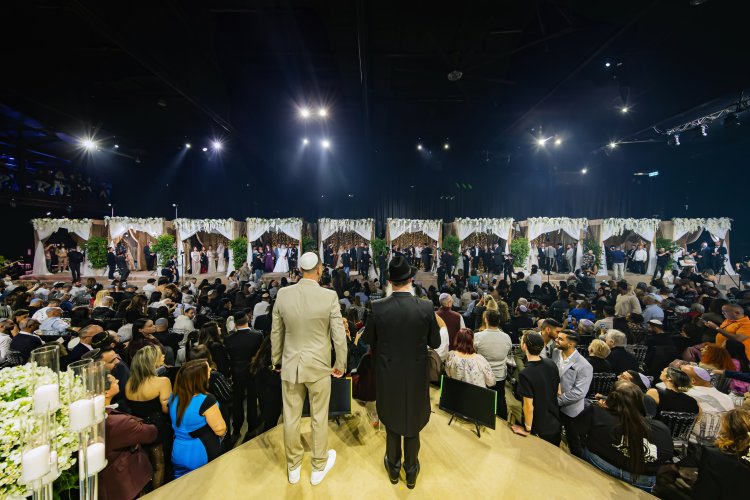 (Photo: Savion Chabad House) An event where Rabbi Bistritzky married over 10 soldiers in one evening
(Photo: Savion Chabad House) An event where Rabbi Bistritzky married over 10 soldiers in one evening![(Photo: Savion Chabad House)]() (Photo: Savion Chabad House)
(Photo: Savion Chabad House)
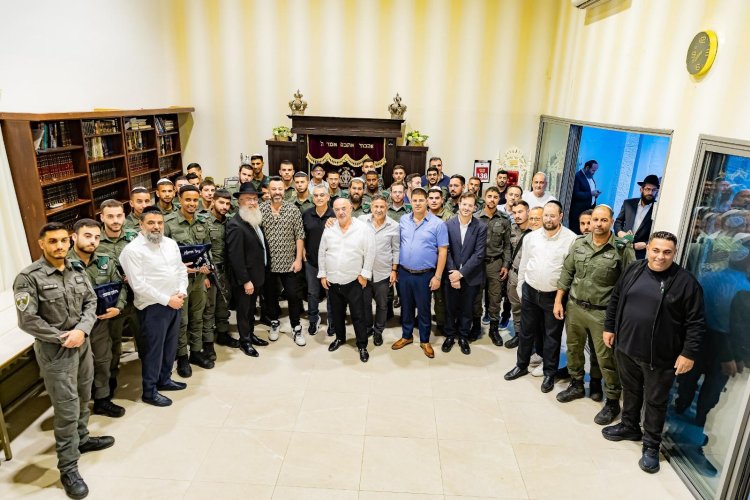 (Photo: Savion Chabad House)
(Photo: Savion Chabad House)Excelling in Halacha
During the war, Rabbi Bistritzky encountered soldiers in various situations. "It began with us opening a kitchen at the Savion Chabad House the day after Simchat Torah, creating 5000 meals daily for soldiers without kitchen facilities. Every day, 150 Savion residents volunteered, many of whom had never entered a Chabad House before.
"Then came the wedding project, where we married soldiers who came from the front lines in Gaza for short 'after-hours' leave to marry. More than 40 couples tied the knot in Savion’s gardens, with all expenses covered by us. The residents of Savion are constantly looking for ways to contribute, which led to another initiative – financial support for couples trying to have children, funding treatments to bring new life in memory of fallen soldiers. This exciting new project is entirely financed by Savion residents."
Naturally, Rabbi Bistritzky has met numerous soldiers in hospitals around the country, facing difficult halachic questions. "For some, I had immediate answers; others required thorough research of halachic sources before I could offer solutions," he says. "Sometimes, soldiers asked about situations in hindsight, wanting to know the proper course of action during their injury, like if a sedated and ventilated soldier should have had tefillin placed by his father, or how a soldier unable to speak due to a jaw injury might fulfill prayer with thought alone. As I spoke with more soldiers, I encountered progressively complex questions, each more touching than the last. This inspired me to compile these questions into a book, to assist others in similar circumstances and to offer Israelis a glimpse of our heroic soldiers' experiences."
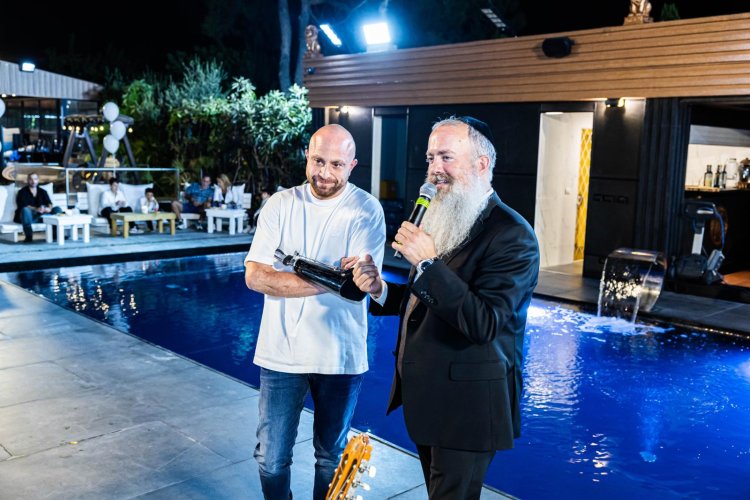 Rabbi Bistritzky with Ziv Shilon (Photo: Savion Chabad House)
Rabbi Bistritzky with Ziv Shilon (Photo: Savion Chabad House)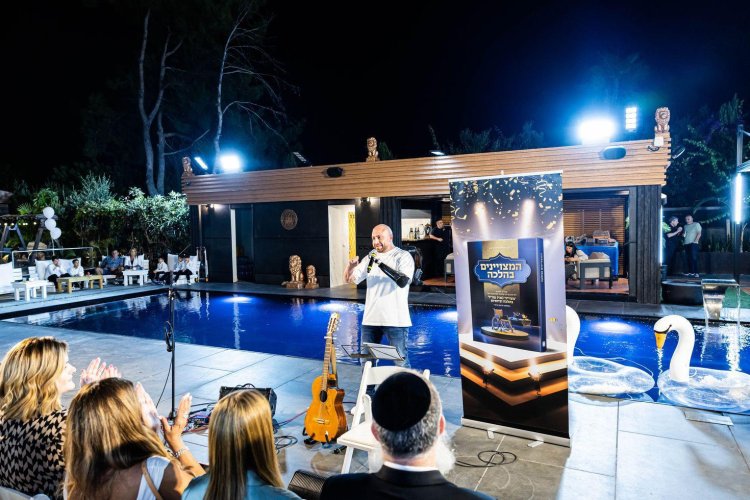 (Photo: Savion Chabad House)
(Photo: Savion Chabad House)Rabbi Bistritzky named the book 'Excelling in Halacha,' drawing inspiration from a 1980 event when a group of disabled IDF veterans participated in a sports competition in Toronto. On their way, they visited the Lubavitcher Rebbe in New York, who uniquely delivered a speech in Hebrew urging Israel to refer to them not as 'disabled veterans' but 'IDF excellers.' My book reflects this sentiment – despite challenges, these soldiers excel in observing halacha."
The Commandments Are for Everyone, Including Those with Disabilities
Those opening the book find it accessible both to those who wish to delve deep and those who prefer to skim, presenting numerous halachic situations wounded soldiers face, offering brief answers followed by in-depth exploration.
Chapter headings include questions like: "Prayer and blessings for bedridden paralytics," "Placing the tefillin strap on an amputated finger," "Torah aliyah when unable to stand," "Reciting the Shema without covering the eyes with the right hand," "Shabbat care for sedated and ventilated soldiers," and more.
A special book section addresses challenges during Jewish holidays: "Holding the shofar with an amputated hand," "Holding the four species with an amputated hand," "Can a blind person recite the tree blessing?" and more. Additional laws pertain to the life cycle, like: "Breaking a glass at a wedding for someone missing a leg," "When does a disabled IDF veteran recite the Gomel blessing?" "Reading the ketubah from a wheelchair," "Burial of limbs: How is it done, and is it significant to know where they are buried?"
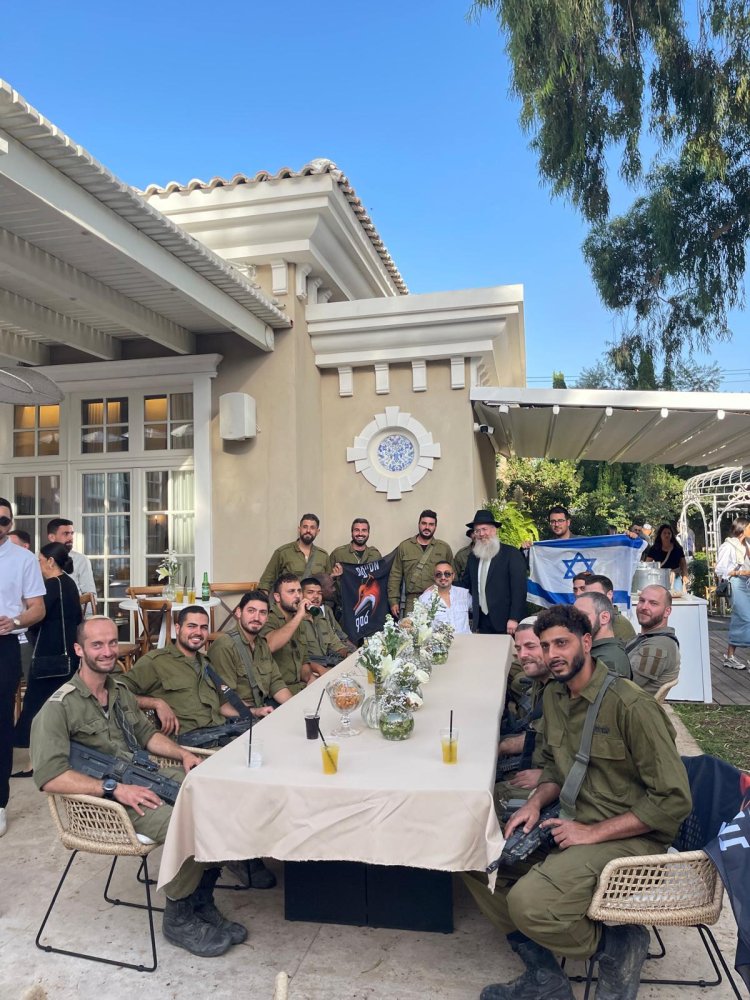 (Photo: Savion Chabad House)
(Photo: Savion Chabad House)Some may argue this book is painful and depressing...
"I believe the opposite. This book doesn’t highlight the challenges of disabilities but offers solutions so no soldier has to forgo a commandment due to their injury. Throughout the book, we found creative and accessible solutions per halacha, ensuring no wounded soldier feels excluded from mitzvot."
Rabbi Bistritzky stresses: "This book isn’t exclusively for the disabled or those wanting to help them. It’s for everyone, offering insight into the struggles faced by those injured protecting us and our country. It’s a chance to understand that the injury isn’t just a moment but a life-changing event, an opportunity to empathize and, if possible, to support."

